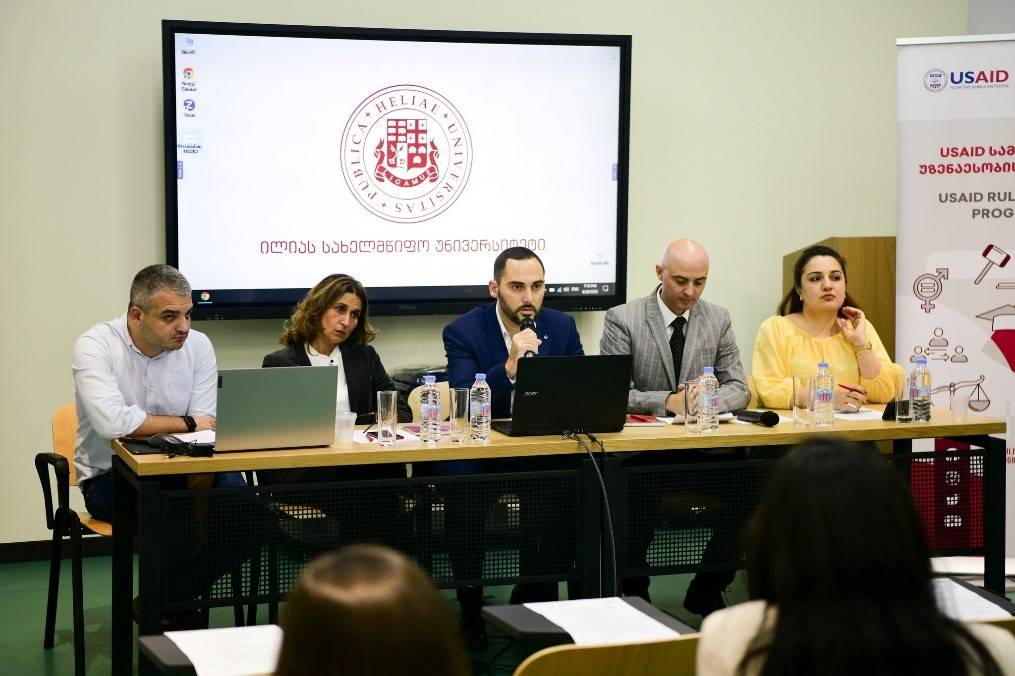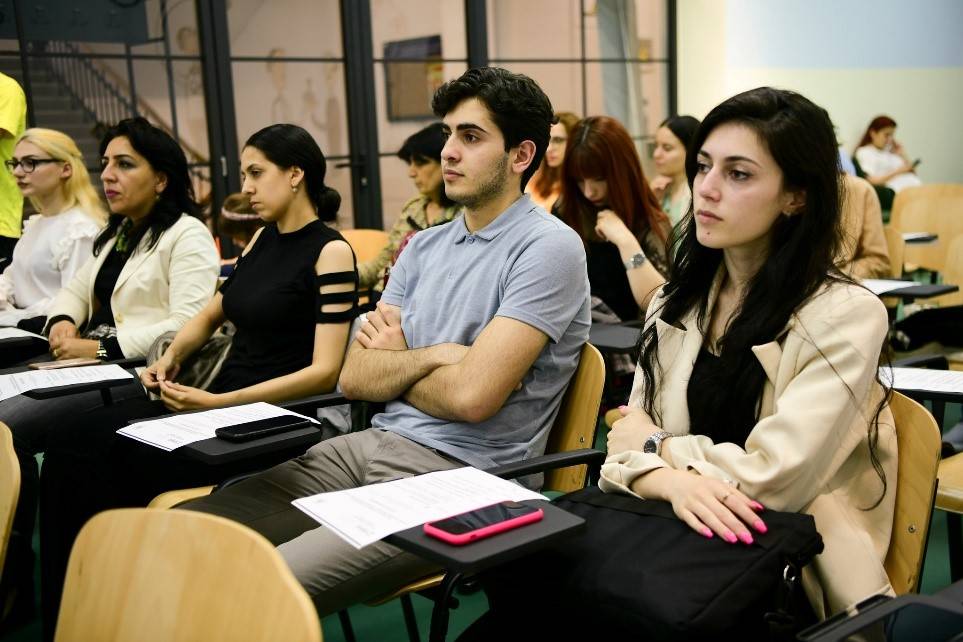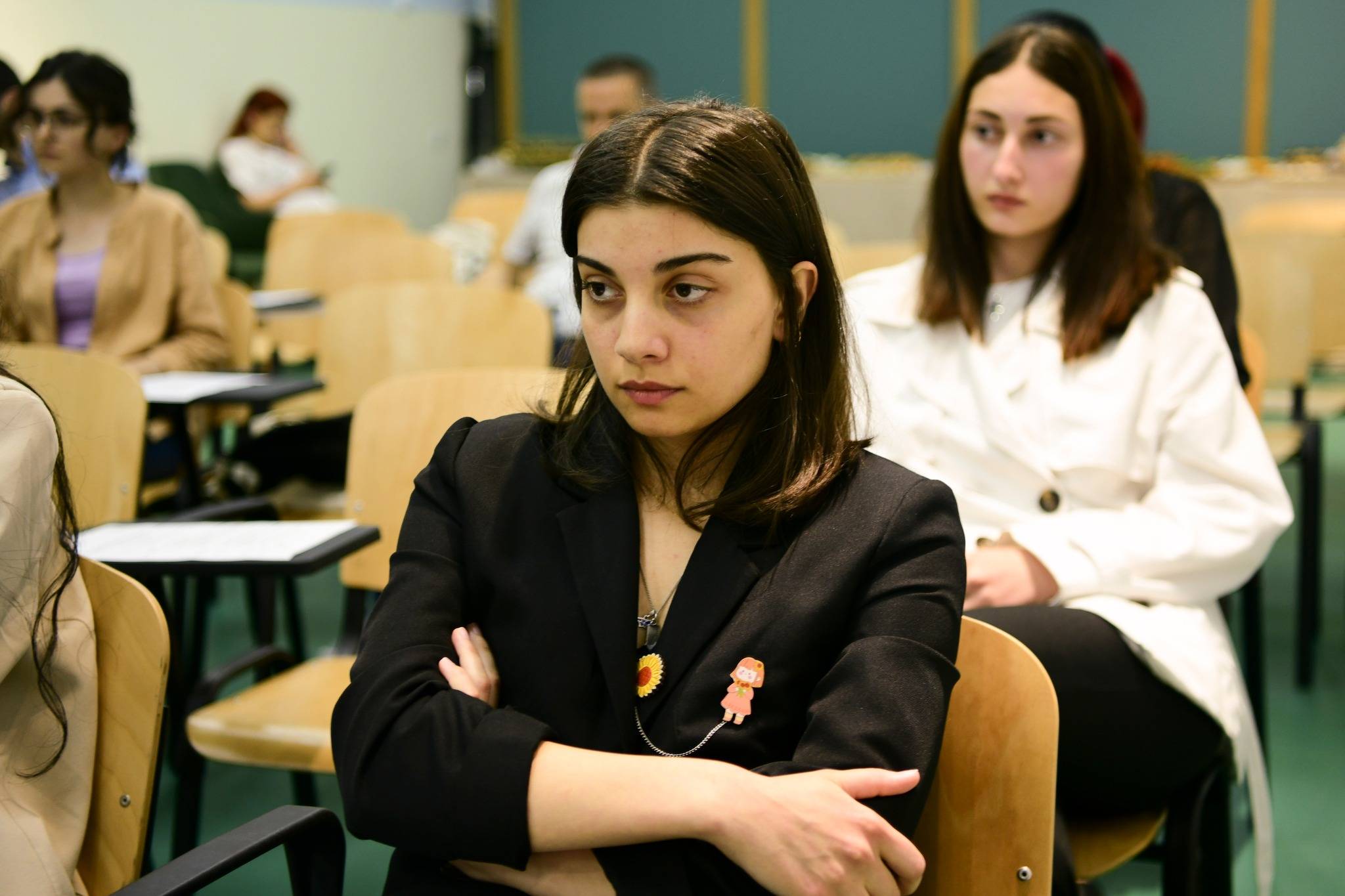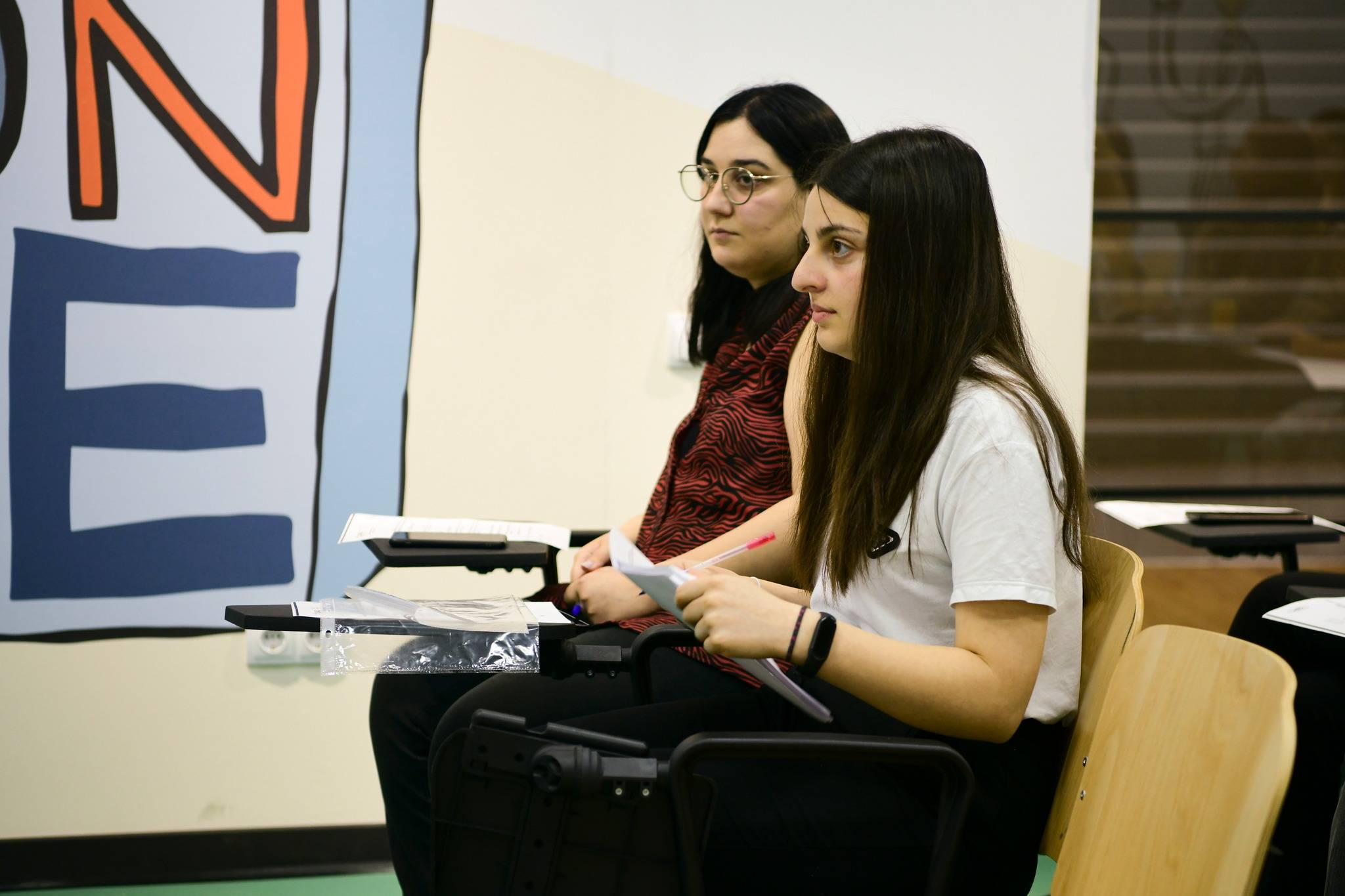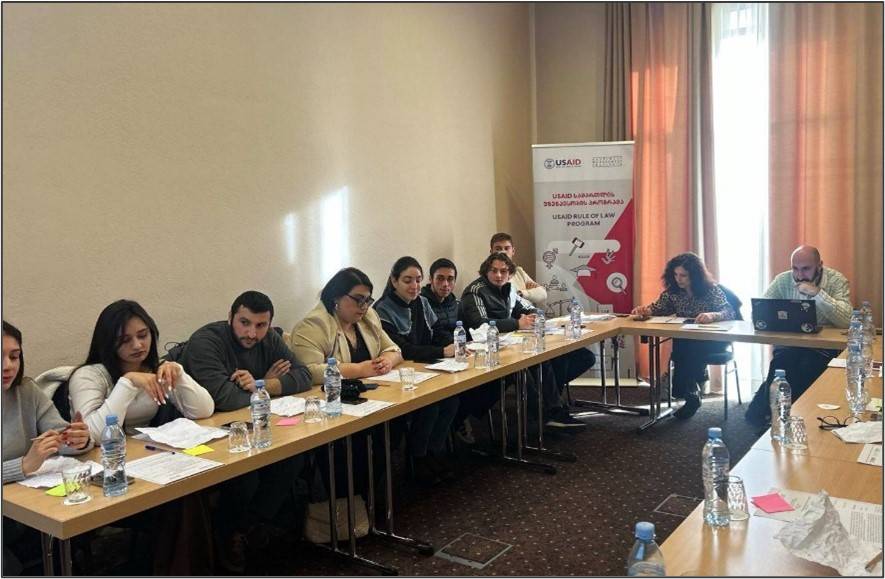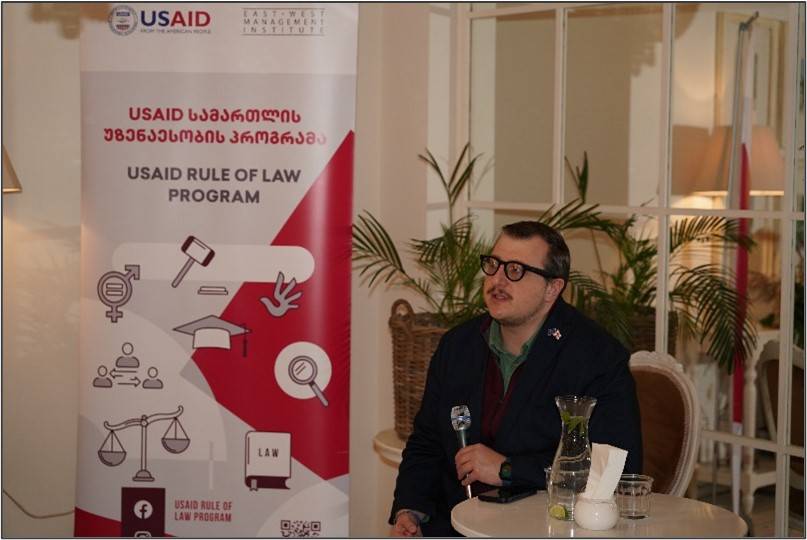Influence of Judges’ Procedural Behavior on Perception of Their Impartiality
On June 20, 2023, the Law School of Ilia State University, with the USAID Rule of Law Program support, organized a presentation of its study on the influence of judges' procedural behavior on the perception of their impartiality by participants in legal proceedings. The event was attended by 30 students, lawyers, and representatives from the academic community.
The project, which was funded by the Rule of Law Program, improved the administration of justice by involving law students and litigants in assessing the perceived impartiality of judges in the courtroom. The perceptions of judges’ impartiality were measured through the evaluations of IliaUni students acting as ‘neutral observers,’ and by comparing those evaluations with the perceptions of 32 actual litigants.
The litigants’ perceptions were obtained by interviewing the plaintiffs and defendants involved in 16 civil and administrative court proceedings. The differences between the neutral observers’ and litigants’ evaluations of the judges’ conduct were then identified through a comparison of the data obtained.
The study’s findings revealed that neutral court observers evaluate a judge's impartiality based on traditional legal standards, focusing on their capacity to maintain objectivity and adhere to legal requirements, procedural rules, and ethical norms in a given case. In contrast, the parties involved in the proceedings consider a judge impartial if they demonstrated active listening, possessed a good reputation, allowed the parties to express themselves fully, refrained from favoring the stronger party (e.g., the state), and ensured clear comprehension of all explanations by each party. These findings carry significant implications, as they confirm the pivotal role of Procedural Justice (PJ) in shaping the court users’ perception of justice in Georgia.
One of the key recommendations of the report is for Georgian courts to introduce more PJ training programs for judges to strengthen their active listening skills and “emotional intelligence,” and improve their awareness of how their procedural conduct can have a direct impact upon the court users’ perceptions of judicial impartiality. Another recommendation is to introduce programs to educate the general population about the PJ standards that judges should observe in the courtroom, including the typical attributes/characteristics of impartiality that judges should display and the procedural duties and responsibilities they should apply.
In his opening remarks, Ilia State University Law School Associate Professor Konstantine Chokoraia highlighted the importance of the research conducted jointly by Ilia University’s academics and students, and the role it played in establishing community oversight practices on the court system.
Dr. Tim Bunjevac, Community Engagement Adviser at the USAID Rule of Law Program, commended the authors of the report for producing an important empirical snapshot of the administration of justice in Georgia and reiterated the Rule of Law Program’s commitment to supporting future projects aimed at improving the engagement between the judiciary, the community, and academia.
